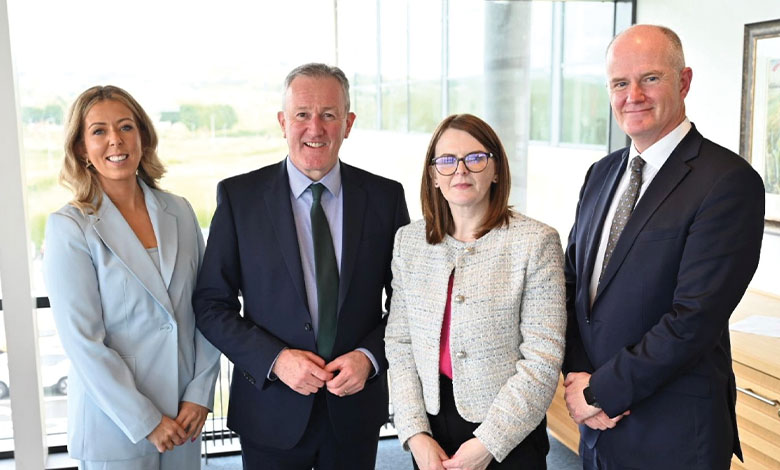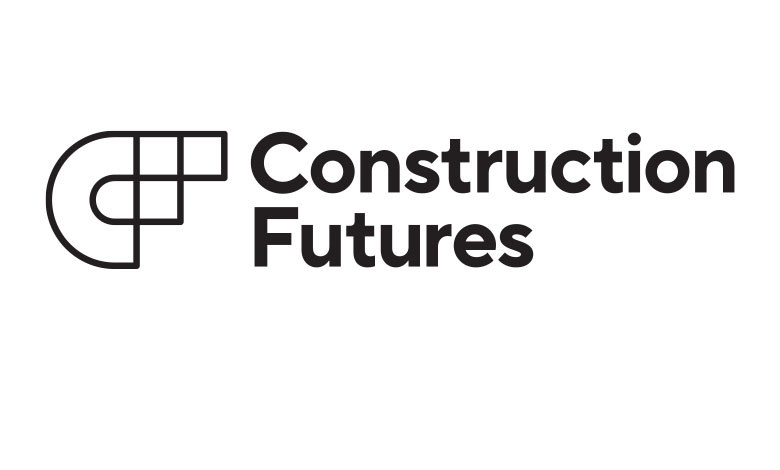Construction Futures NI Advancing Northern Ireland’s construction industry

Fionnuala McKenna, head of strategic engagement at Construction Futures NI, discusses how the organisation aims to enhance collaboration, streamline processes, and attract fresh talent to the construction industry in Northern Ireland.
Context and challenges
Construction Futures NI was created following last year’s EY Industry Skills Review. This is a company owned and operated jointly by the employers, through the Construction Employers Federation, CEF, and the employee representatives from the Unite and GMB Unions. The joint objective is to identify a range of challenges faced by the industry and to develop meaningful solutions to these. By focusing on informing, attracting, developing, and retaining talent, Construction Futures aims to push the construction sector forward in Northern Ireland.
The skills issues facing Northern Ireland’s construction industry are many and varied. The sector is complex with a broad landscape of employers and skills providers with limited points of coordination between them. It faces stiff competition for resources with the rest of Great Britain, the Republic of Ireland, and at home competition is provided by existing and emerging sectors with retention of staff an ongoing challenge.
Government is the main source of pipeline for the industry, commissioned by various local departments (primarily health, education, communities, and infrastructure) with the Department of Finance responsible for developing procurement policy. The Department for the Economy owns the skills agenda for Northern Ireland, however, to influence the perception of construction in schools, the Department of Education has an important role to play.

The industry faces significant drivers for change; the green economy and net zero will influence the shape of construction for years to come and there is an increasing role for digitisation, AI and software development in construction and increasingly manufacturing processes. The sector has recovered from Covid-19 but, with significant spending cuts this has weakened confidence in pipeline and future supply chain. This knock-on effect naturally impacts skills and apprenticeships. Issues include:
- an immediate shortage in core trades skills – A recent internal survey among CEF members revealed that 80 per cent of respondents had experienced a shortage of skilled labour in the past 12 months;
- competitiveness of reward packages vs the Republic of Ireland/UK/further afield;
- perception of construction as an attractive career path; and
- people not qualifying with the right skills needed by the sector.
Gender imbalance remains a persistent issue in construction; however, female representation has increased by 2 per cent over the past five years, with women now comprising 15 per cent of the workforce as of last year. While the gradual increase is encouraging, significant improvements are still needed. Given the ongoing skills shortage, the industry must aim to engage 50 per cent of the population more effectively.
Enhancing promotion and improving data collection on the presence of women already in the sector will help counter the perception that fewer women are involved than actually are, aiding in attracting more participants. Continuous collaboration with organisations like WomensTec, along with incentives, bursaries, and pilot programs, such as CITB’s Women in Plant Operator Programme, will further assist in increasing female participation.
Collaboration and people: The core of success
The Northern Ireland construction industry is undertaking several worthy initiatives, yet coordination could be greatly improved as organisations often work in silos, leading to a fragmented effort. The industry would benefit greatly with improved co-ordination and a simplification of the complex education and training structure that exists. Construction Futures’ objective is to assist with better signposting and encourage organisations to link up more effectively, therefore avoiding duplication of efforts and preventing eventual burnout.
Currently, the focus is on actively listening to the concerns of key stakeholders, including educational and government institutions, industry companies, community groups and representative bodies to get a clear picture of the current construction ecosystem and linking up on common objectives. Common issues raised include:
- the complexity of training and qualification frameworks, which can be challenging to navigate for those not familiar with the sector-specific language;
- the perception of the construction industry in schools;
- the need to promote vocational sectors alongside traditional academic paths;
- sufficient pipeline of projects to increase stability and ensure apprentices consistently have work through their employers;
- challenges in linking apprentices with main contractors and sub-contractors; and
- the complex nature of the construction sector and a continuously mobile workforce across the region.
Addressing these concerns requires improved collaboration between the Department for the Economy (DfE) and the Department of Education (DE) to enhance the education and training system and streamline the careers service.
From an industry perspective, with a focus on social responsibility, the construction sector is exploring ways to improve the linkage between apprentices and employers and to ensure employment after apprenticeships. Currently, ranking third in higher level apprenticeship uptake, the industry aims to enhance this by collaborating with universities and further education colleges. The Skills Barometer shows a significant demand for education at all levels, with approximately 14,000 for higher education (levels 4-6) and 12,000 for levels 2 and 3. This also highlights the critical need for more investment in and recognition of vocational training.
Construction Futures initial focus aims to raise sector awareness through its NI Built Environment Careers prospectus and the launch of a ‘Gateway’ website. This site plans to simplify the complex construction ecosystem and streamline the qualifications and training landscape for construction careers. Serving as a central hub, the Gateway website will direct relevant organisations and stakeholders to relevant resources, training, education, and initiatives, while also facilitating data collection.
Adopting a data-driven approach will be an important aspect for the company in refining strategies and establishing a skills baseline, a vital measure to assess the effectiveness of initiatives. Enhanced by better technology and collaboration, these efforts signify the beginning of Construction Futures’ journey.

Further info can be found at www.constructionfuturesni.com





